The “2023 Carbon Neutrality and Design Innovation Forum” co-hosted by Tsinghua University and Politecnico di Milano (Polimi), co-sponsored by China-Italy Design Innovation Hub, Climate Change and Sustainable Development Institute and Future Laboratory of Tsinghua University, was held on May 26 in Milan. Yang Bin, Vice President of Tsinghua University; Giuliano Noci, Vice-Rector for China, Politecnico di Milano; Corrado Clini, Former Minister, the Italian Ministry for the Environment, Land and Sea; Yao Liangjun, Science and Education Counselor, Consulate-General of the People’s Republic of China in Milano; Arianna Censi, Mobility Councilor, Municipality of Milan; Maria Rosa Azzolina, President of the Italian Institute of Chinese, and other distinguished guests attended the forum. More than 100 students and teachers from Tsinghua University and Polimi participated in the event.
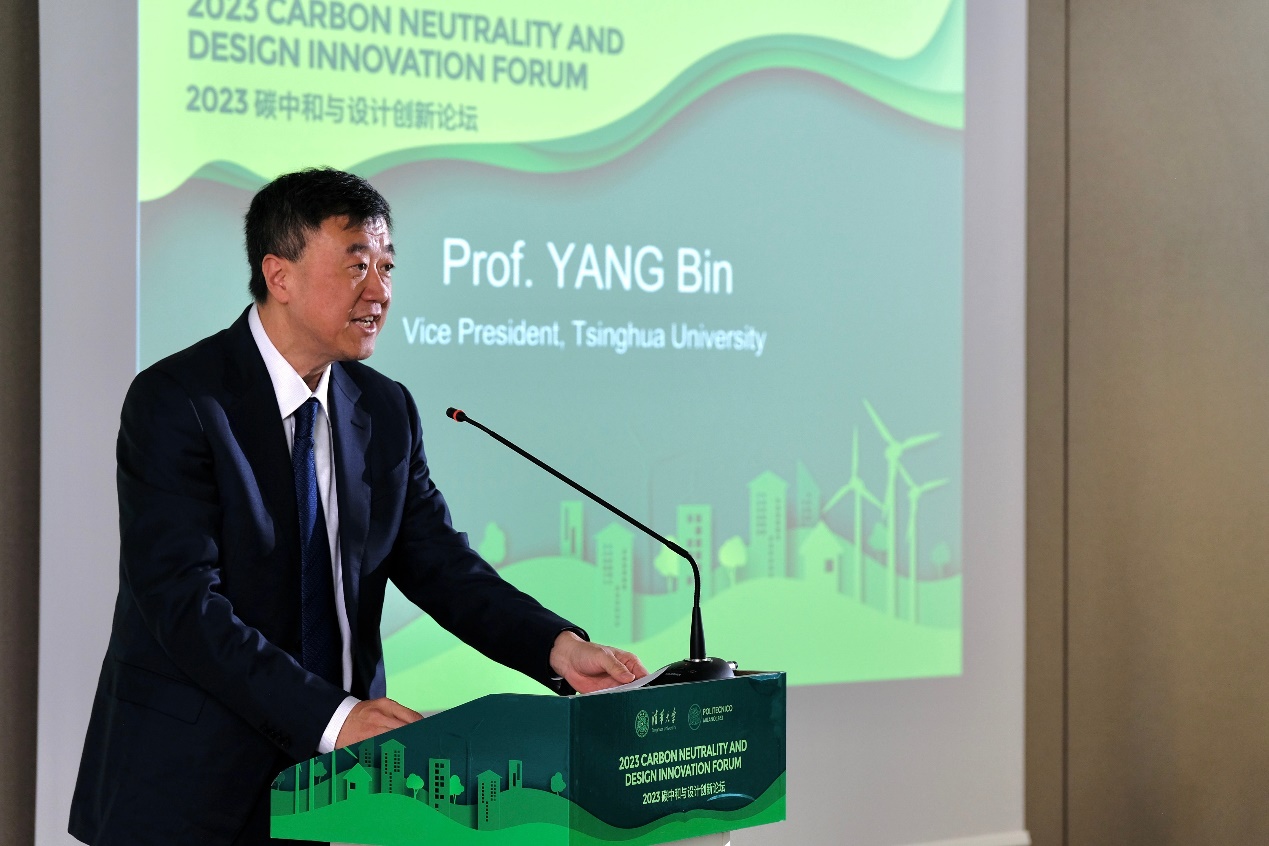
Yang Bin addresses the forum
Yang Bin said that in the context of the current global crisis, innovation cooperation is the key to achieving a sustainable future. China and Italy have a long history of cooperation, and it is of landmark strategic significance for the two countries to strengthen cooperation in the field of addressing climate change. The two countries share a common vision for a sustainable future and have made unremitting efforts to set an example for the significance of global cooperation in addressing climate change by working together, leveraging strengths, and exploring groundbreaking research and innovative solutions. Yang emphasized that to address climate change calls for unwavering commitment, dedication and global solidarity, with the hope that Politecnico di Milano and Tsinghua University will continue to build a bridge for cooperation, foster a partnership that transcends national boundaries and ideologies, open up new paths, expand new boundaries, and create a sustainable future for generations.
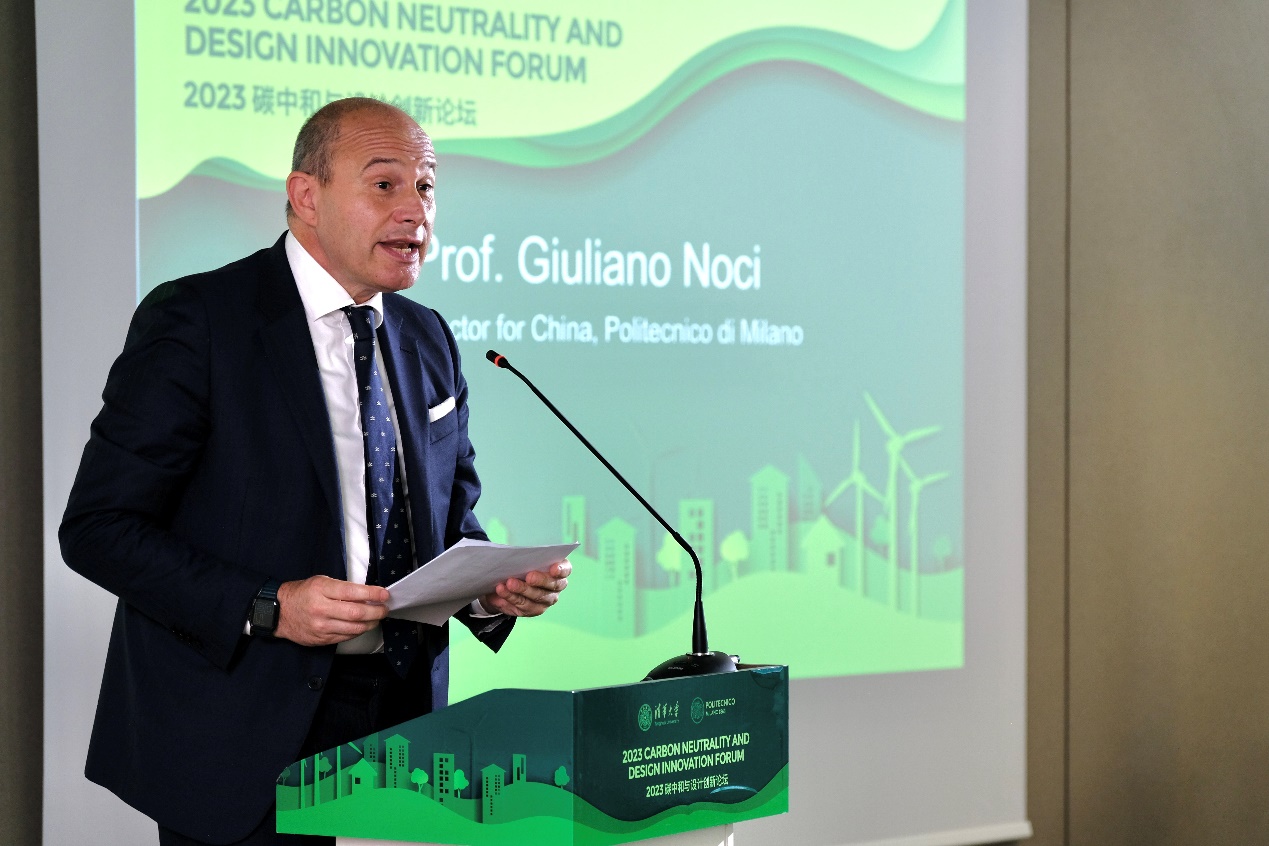
Giuliano Noci addresses the forum
Giuliano Noci said that through determined efforts made by Tsinghua University and Politecnico di Milano, the development of the cooperation platform of the two sides has been consistently promoted. The two sides have made their visions increasingly clear and succeeded in shaping the past. He believed that the initiative on carbon neutrality and the activities with a variety of themes conducted on the platform have played an inspiring role, and expressed the hope that the two sides will continue to exert creativity with persistent and dedicated efforts.
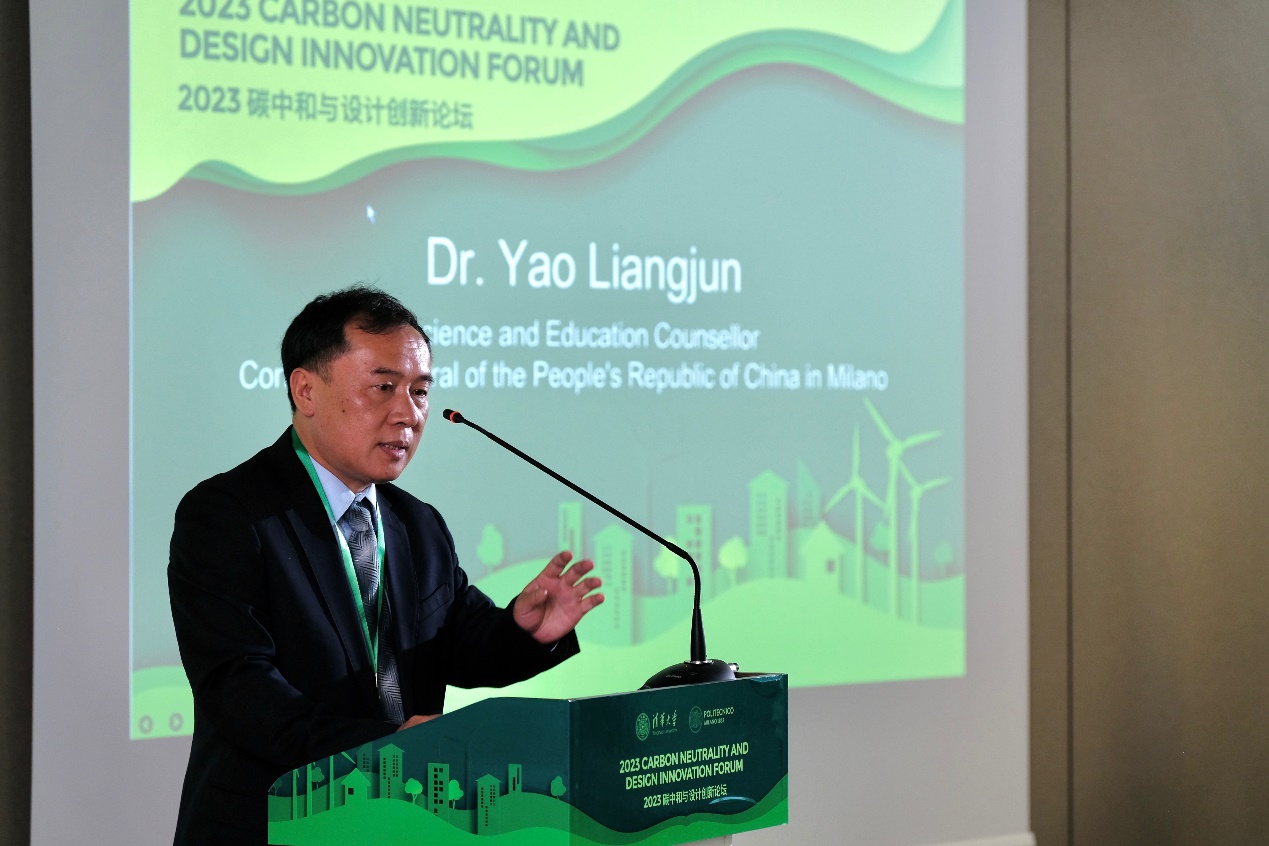
Yao Liangjun addresses the forum
Yao Liangjun said both China and Italy are ancient civilizations with a long history of bilateral exchanges, which have strongly promoted the exchanges and integration of Eastern and Western civilizations, as well as the continuous progress of all mankind. Yao emphasized that China-Italy cooperation in the field of environment and sustainable development has been recognized in the industries of the two countries and aroused attention from the international community, becoming a model of bilateral cooperation in addressing climate change. The Chinese Consulate General in Milan will continue to support bilateral cooperation and exchanges in the fields of technology, education and culture, and expect more fruitful results.
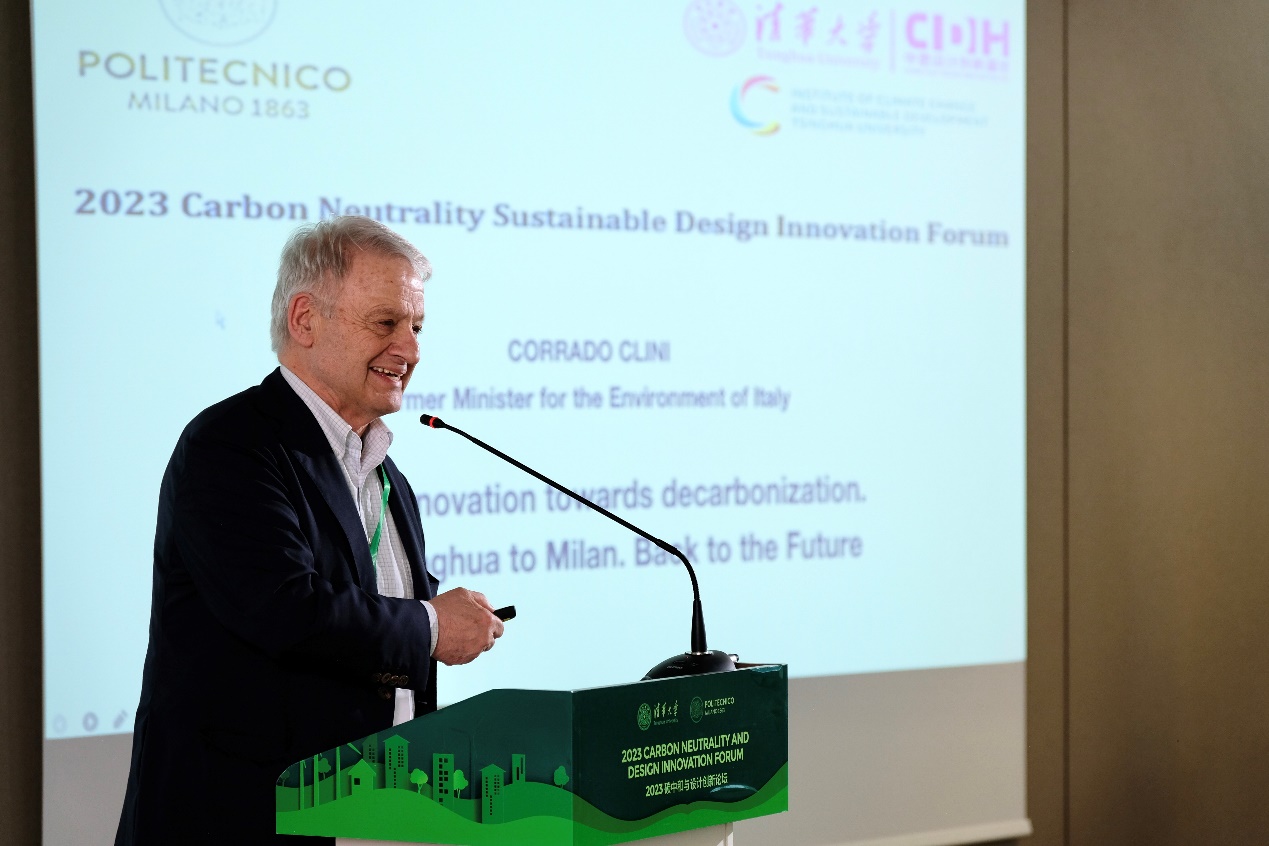
Corrado Clini addresses the forum
Corrado Colini said the construction of building design models of the sustainable ecosystems demonstrates the power that environmental cooperation drives economic development and international peace. Both China and Europe have actively explored the energy performance of green buildings and the fields of sustainable development, and strived to examine the future of the economy within the framework of eco-design. He also stressed the significance of addressing the challenge of decarbonization for global governance.
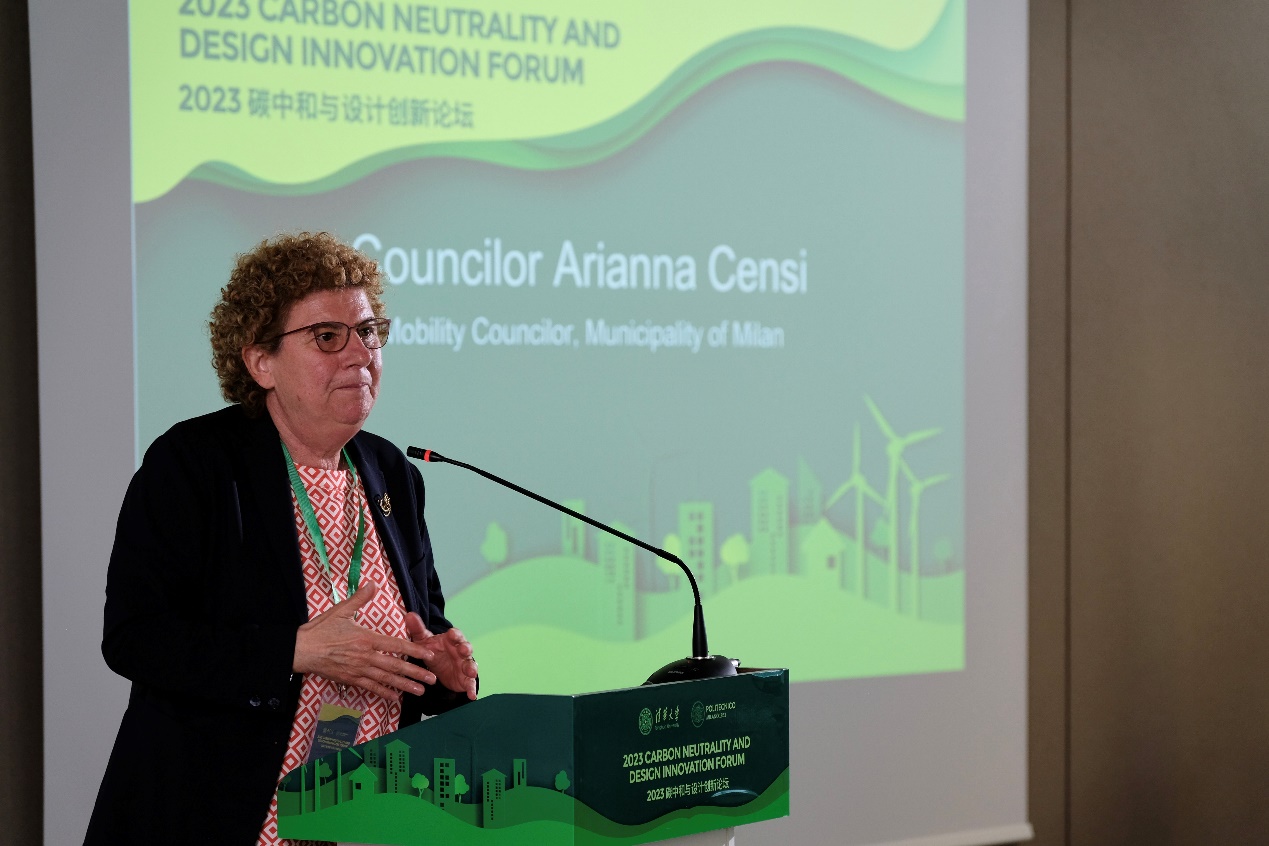
Arianna Censi addresses the forum
Ariana Censi delivered a keynote speech on Milan’s Sustainable Urban Mobility Plan, highlighting transport ecosystems as one of the key ways to transform urban development. Milan aims to protect pedestrians’ rights to bicycles and other new modes of transport by reducing the number of cars and improving the public transport system, innovate the development of sustainable urban mobility and promote the change of the ways of citizens’ acts by creating a transport service platform.
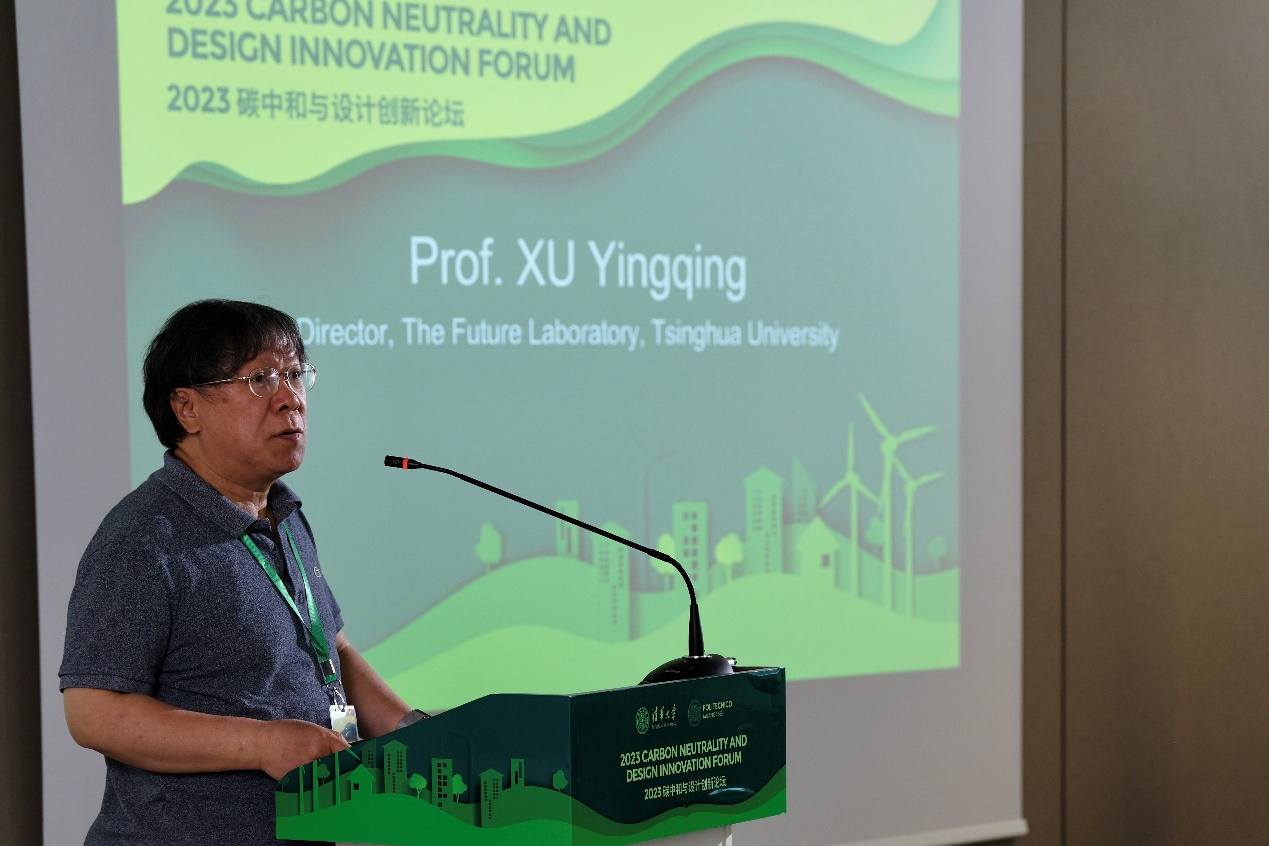
Xu Yingqing addresses the forum
Xu Yingqing, Director of the Future Laboratory of Tsinghua University, delivered a keynote speech focusing on olfactory computing and its application in environmental protection. Xu explored the application scenarios and theoretical prospects of odor calculation, analysis and collection. Upon the analysis of the basis and progress of monitoring technologies towards air pollution, vehicle exhaust and foul-smelling pollutants, Xu said that the monitoring of greenhouse gases is crucial to understanding and addressing climate change, and more attention and research is needed.
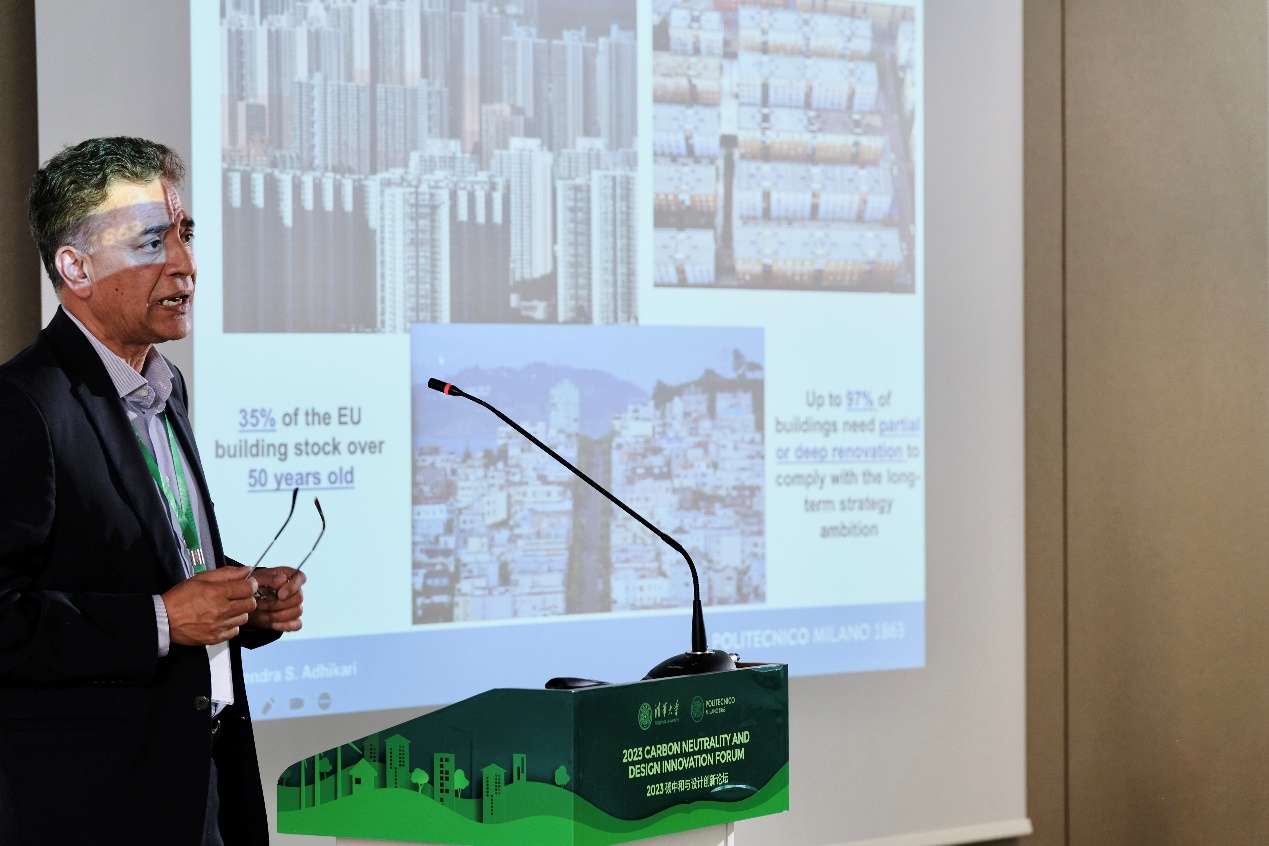
Rajendra Singh Adhikari addresses the forum
Rajendra Singh Adhikari, Professor of Politecnico di Milano, delivered a keynote speech on sustainable architecture. At the level of current technology, the challenge of zero-carbon architecture does not originate from the design of new buildings, but how to make intervention in terms of urban building stock. Within the framework of addressing climate change, energy consumption needs to be minimized for sustainable buildings. He gave an introduction to relevant intelligent technology systems and relevant case studies.
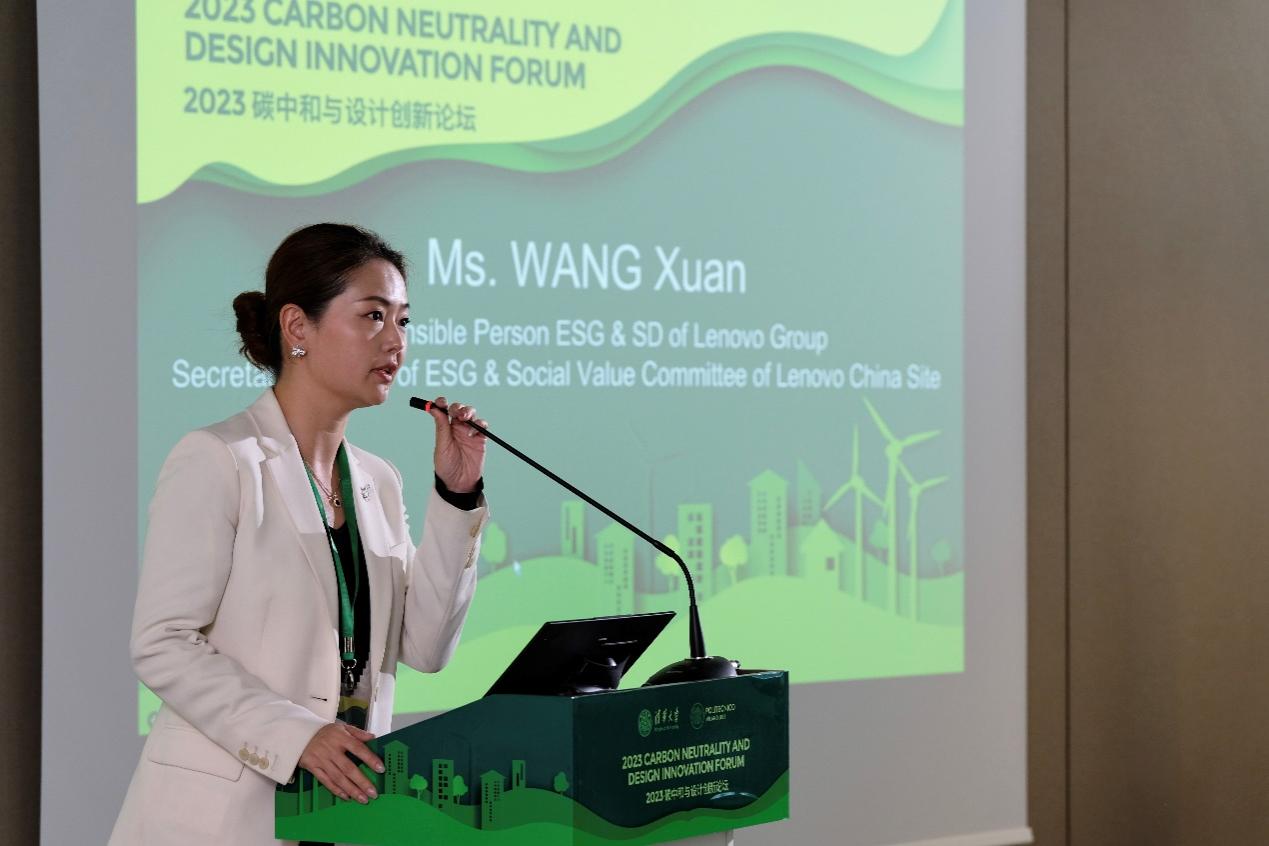
Wang Xuan addresses the forum
Wang Xuan, Responsible Person ESG & SD of Lenovo Group, Secretary General of ESG & Social Value Committee of Lenovo China Site, introduced Lenovo’s efforts in sustainable development. As the first high-tech manufacturing company in China to pass the net-zero target validated by the Science Based Targets Initiative (SBTi), Lenovo is committed to achieving net-zero greenhouse gas emissions by 2050, and regards ESG as the strategic focus and core competitiveness of the company's global development layout. Wang shared some of Lenovo's practices and innovations in technology-driven carbon neutrality from the perspectives of green technologies such as warm water-cooling technology, green manufacturing, green supply chain, green solutions such as carbon-neutral buildings, ESG digital capability, and "new IT" to help biodiversity conservation. She said that Lenovo will continue to promote low-carbon transformation through the development of green innovative technologies and strive to mitigate climate change and achieve carbon neutrality.
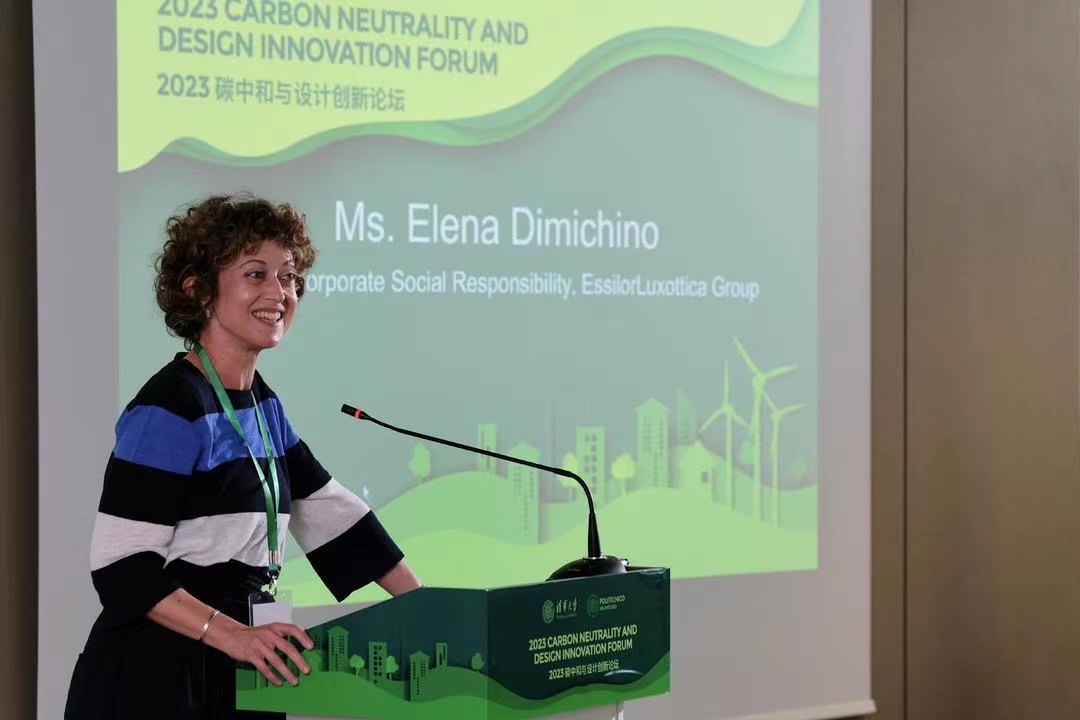
Elena Dimichino addresses the forum
Elena Dimichino, Head of Corporate Social Responsibility, EssilorLuxottica Group, introduced the company’s first sustainability plan covering various aspects including sustainability, environment and marketing. Dimichino added that carbon footprint has been actively reduced through Essilor Luxottica’s vast global distribution network; risk assessment on climate resilience has been strengthened; investment has been increased in sustainable design; and, all staff are mobilized to update their work on sustainability through digital platforms.
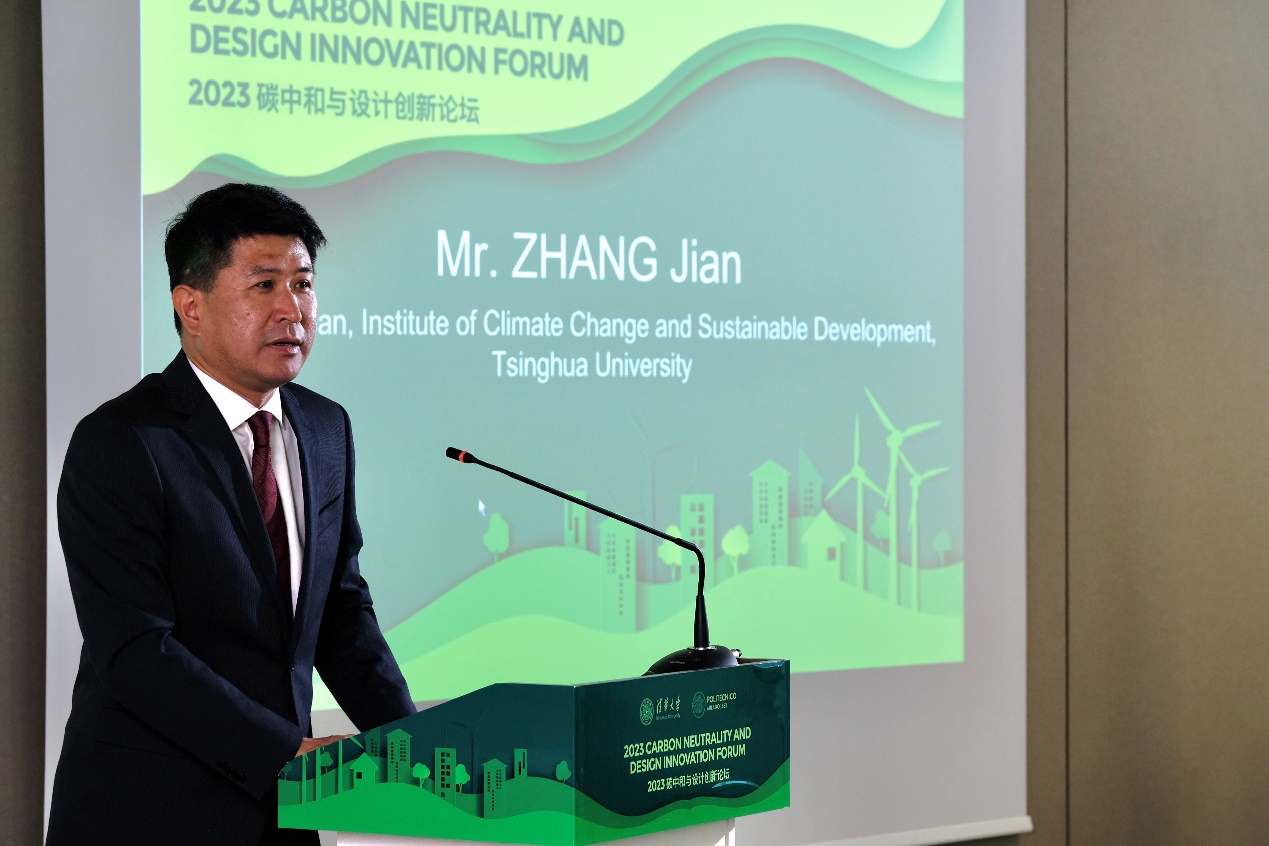
Zhang Jian addresses the forum
Zhang Jian, Deputy Dean, Institute of Climate Change and Sustainable Development, moderated the forum. Zhang said that the forum provides new knowledge for all parties to jointly promote reforms, facilitates sustainable design practices, and contributes to the future of carbon neutrality.
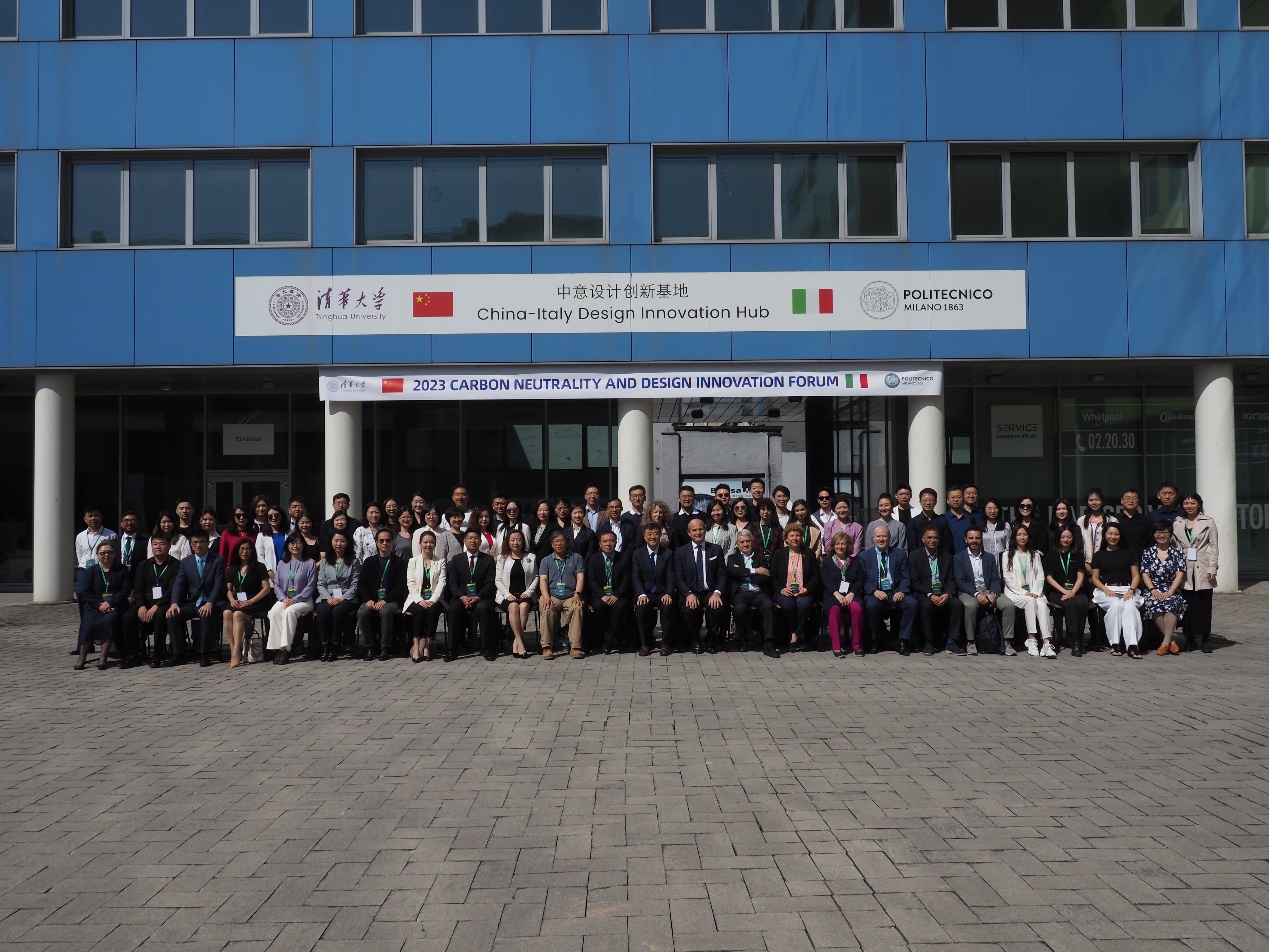
Contributed by Institute of Climate Change and Sustainable Development, Tsinghua University
Editors: John Paul, Li Han

